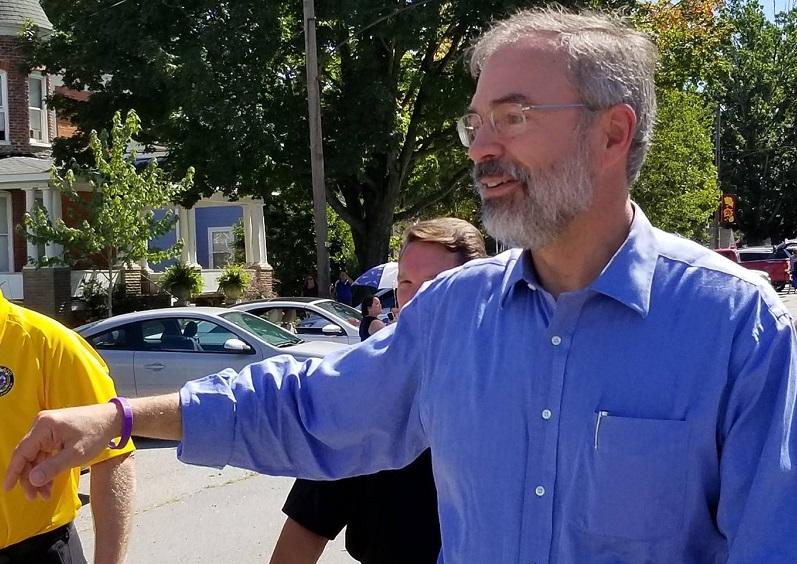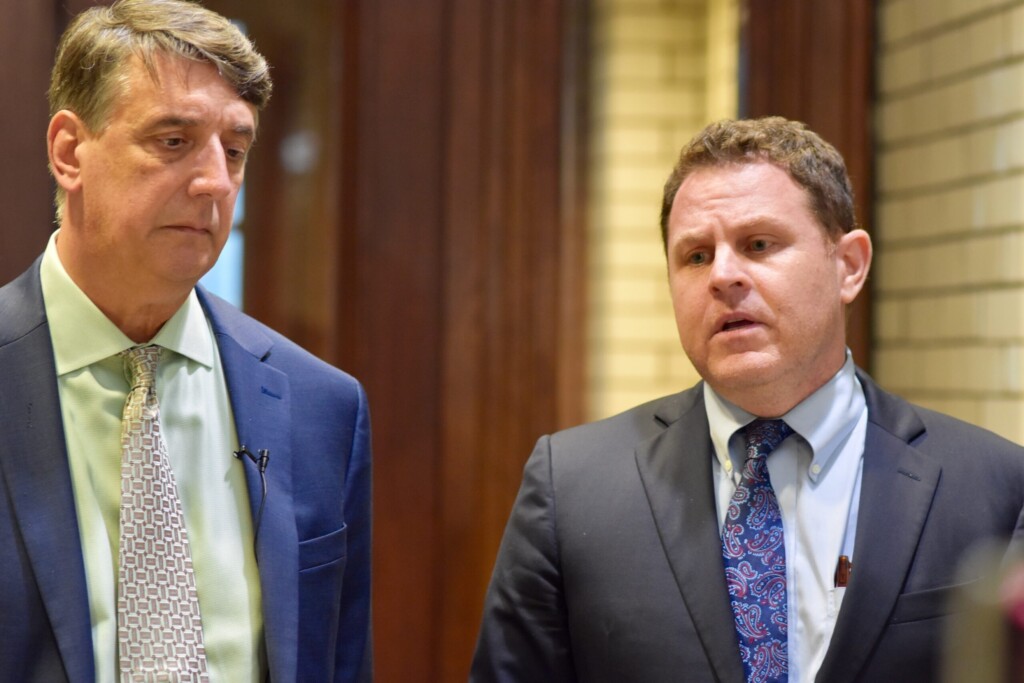Two forums were planned for last Sunday at Chesapeake College for Democratic and Republican candidates running in this year’s primary elections for the U.S. House of Representatives in Maryland’s 1st congressional district. The Forum was sponsored by the Spy in partnership with the Eastern Shore chapters of the League of Women Voters, WHCP-FM, the APG-Star Democrat.
Sadly, only one of them actually took place. On the Democratic side, the planned discussion had to be canceled because Blessing T. Oluwadare did not appear for the forum. According to LWV policy, a forum with only one candidate is not permitted.
The Republican forum did take place, but it, too, was not ideal. The current incumbent, Congressman Andy Harris, could not attend due to a conflict in his schedule. Nonetheless, candidates Chris Bruneau and Michael Lemon exchanged policy positions moderated by Glenna Heckathorn, the co-president of the League of Women Voters of the Mid-Shore, on a host of issues ranging from Ukraine, Israel, abortion, environmental quality of the Bay, the Key Bridge, and the winner of the 2020 presidential election.
This video is approximately one hour in length.





